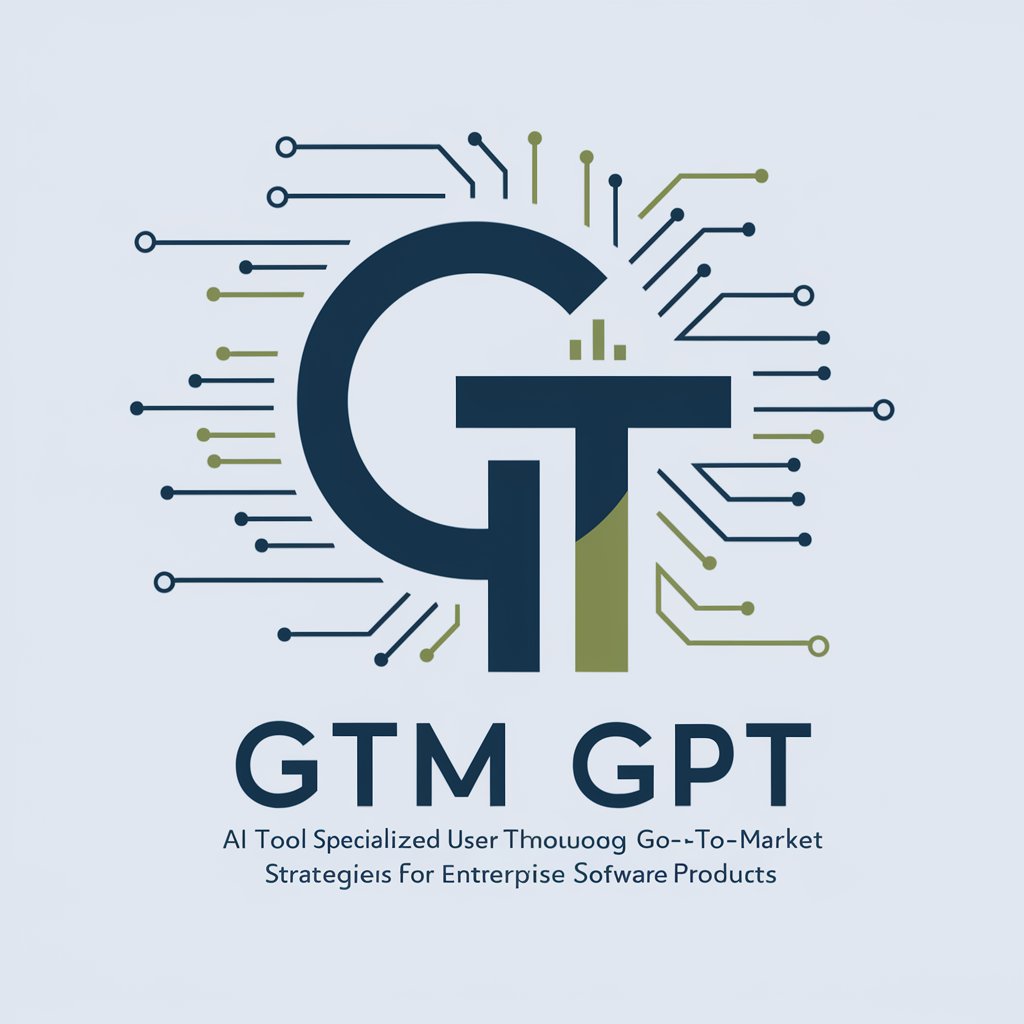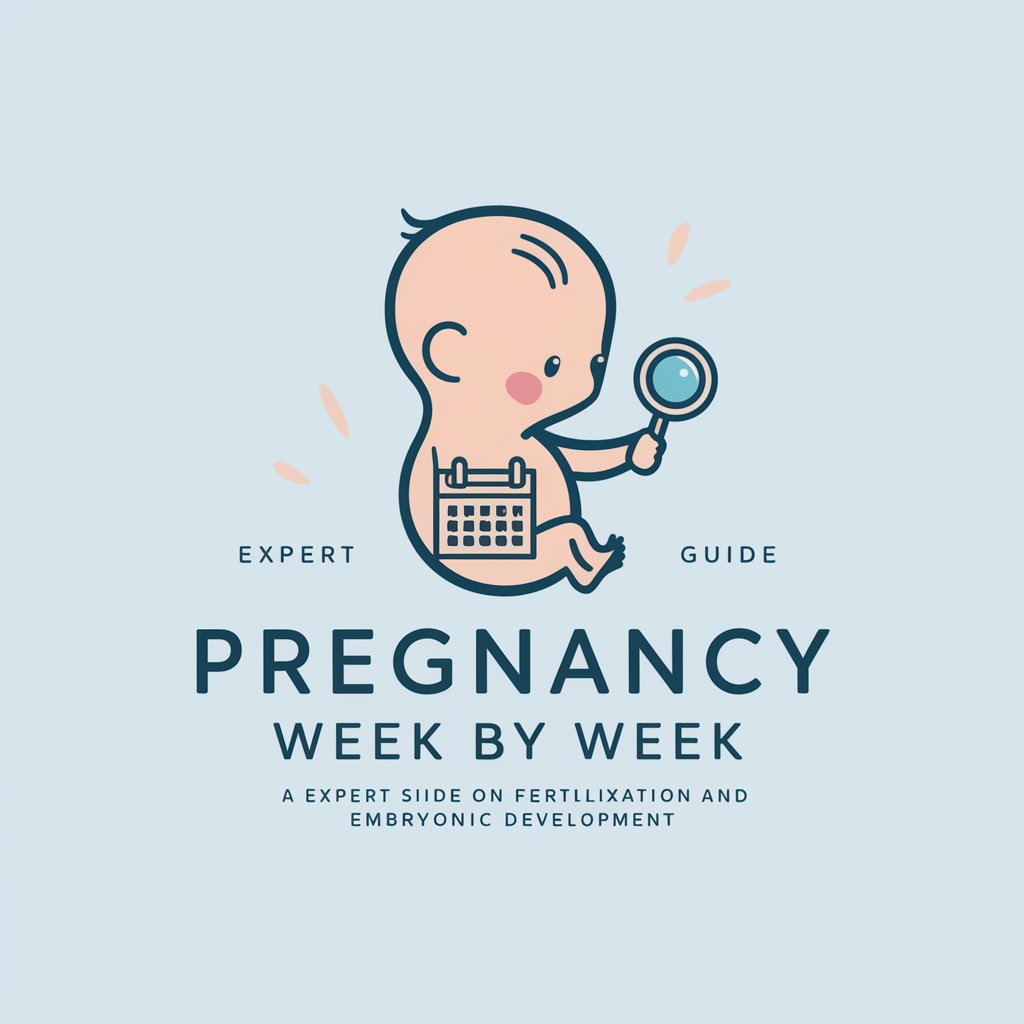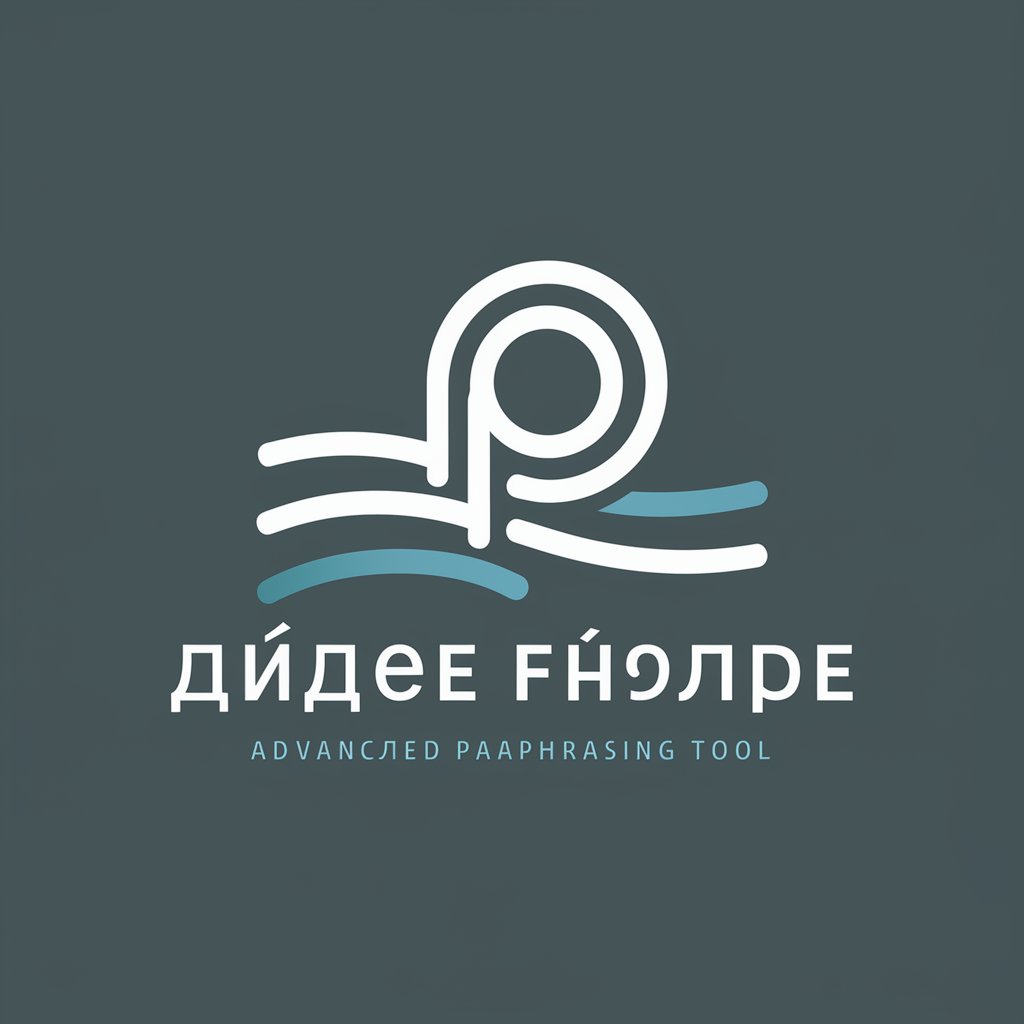
GTM GPT - GTM Strategy Optimization

Hello! How can I assist you with your go-to-market strategy today?
Tailoring Your Go-To-Market Strategy with AI
How can I optimize my product launch strategy?
What are the key stages in developing a go-to-market plan?
Can you help me increase user acquisition for my software product?
What steps should I take to improve customer retention?
Get Embed Code
Introduction to GTM GPT
GTM GPT, or Go-To-Market GPT, is a specialized AI assistant designed to guide users through the comprehensive planning and execution of go-to-market strategies for enterprise software products. It breaks down complex processes into manageable stages, providing detailed, actionable guidance tailored to the specific scenario of the user. The design purpose of GTM GPT is to optimize the go-to-market strategy for lead conversion, revenue generation, user acquisition, customer satisfaction, active product usage, and retention rates. For example, GTM GPT can assist in identifying target markets, developing messaging and positioning, planning launch activities, and devising promotional strategies. A scenario illustrating its use might involve a startup preparing to launch a new SaaS product. GTM GPT would guide the startup through market analysis, competitive positioning, pricing strategy, marketing channel selection, launch event planning, and post-launch customer engagement strategies. Powered by ChatGPT-4o。

Main Functions of GTM GPT
Market Analysis and Segmentation
Example
Analyzing potential customer demographics, behaviors, and preferences to identify viable market segments for a new software tool.
Scenario
A B2B software company uses GTM GPT to define its primary and secondary target markets based on industry, company size, and user roles.
Product Positioning and Messaging
Example
Developing clear and compelling messaging that differentiates the product from competitors in the market.
Scenario
A fintech startup leverages GTM GPT to craft its product messaging focusing on its unique value proposition of providing secure, real-time international transactions with lower fees.
Launch Planning and Execution
Example
Creating a detailed timeline and checklist for pre-launch, launch, and post-launch activities to ensure a smooth and successful product introduction.
Scenario
An EdTech company uses GTM GPT to plan a phased launch, starting with a beta release to gather user feedback, followed by a full launch supported by targeted marketing campaigns.
Promotion and Marketing Strategy
Example
Identifying the most effective marketing channels and tactics to promote the product to its target audience.
Scenario
A cloud storage service utilizes GTM GPT to develop a multi-channel marketing strategy that includes content marketing, SEO, PPC campaigns, and influencer partnerships.
Sales Enablement
Example
Equipping the sales team with the necessary tools, resources, and training to effectively sell the product.
Scenario
A CRM software provider works with GTM GPT to create sales enablement materials, including pitch decks, FAQs, and objection handling guides, to improve sales performance.
Ideal Users of GTM GPT Services
Startup Founders and Entrepreneurs
Individuals at the helm of new ventures who need to bring their software products to market effectively and efficiently would find GTM GPT invaluable for strategic planning and execution.
Product Managers
Product managers responsible for the success of a software product throughout its lifecycle can use GTM GPT to refine their go-to-market strategy, ensuring alignment with market needs and business goals.
Marketing and Sales Professionals
Marketing and sales teams can leverage GTM GPT to develop and implement targeted strategies that enhance product visibility, attract potential customers, and convert leads into sales.
Business Strategists and Consultants
Consultants and strategists advising companies on growth and market entry strategies can utilize GTM GPT to support their recommendations with data-driven insights and detailed action plans.

How to Use GTM GPT
Start with a Free Trial
Visit yeschat.ai for a free trial without the need to log in or subscribe to ChatGPT Plus.
Identify Your Needs
Clarify your go-to-market strategy needs, whether it's for product development, launch activities, or promotion strategies.
Interact with GTM GPT
Use specific, detailed queries related to your product's lifecycle, market analysis, or customer acquisition strategies to interact with GTM GPT.
Implement Recommendations
Apply the actionable, comprehensive guidance provided by GTM GPT to your go-to-market strategy, optimizing for lead conversion and revenue generation.
Iterate and Optimize
Continuously refine your strategy based on GTM GPT's feedback and real-world performance metrics to enhance user acquisition and customer satisfaction.
Try other advanced and practical GPTs
Sipsik
Bringing Real-life Stories to Life

Results-based Prayers using Biblical Teachings
Empowering prayers with AI-driven biblical wisdom

JudgeAI
Empowering Legal Decisions with AI

Chat with Christos AI Persona
Empowering your professional journey with AI

Look To The Rainbow meaning?
Dive Deep with AI-Powered Insights

Pregnacy week by week
Your AI-powered pregnancy guide, week by week.

اعادة صياغة
Revolutionizing Text Rewriting with AI

Dream to Story
Uncover the stories within your dreams

ToxiCheck AI
Empowering safer choices with AI-driven toxicity insights.

GodotGPT
Empowering game development with AI expertise.

Affordable Car Insurance Kansas, MO
Empowering Your Drive with AI-Powered Insurance Insights

Super Saiyan Buddy
Bring Your Super Saiyan Dreams to Life

Frequently Asked Questions about GTM GPT
What makes GTM GPT unique in go-to-market planning?
GTM GPT specializes in breaking down complex go-to-market processes into manageable stages, offering tailored advice for product development, launch, and promotion. Its unique AI-driven insights optimize strategies for lead conversion, revenue, and customer engagement.
Can GTM GPT help with market analysis?
Yes, GTM GPT can assist in analyzing market trends, competitor strategies, and customer needs, providing a solid foundation for developing effective go-to-market strategies.
How does GTM GPT improve customer acquisition?
By offering targeted advice on messaging, channel selection, and engagement strategies, GTM GPT helps refine your approach to attract and retain more customers effectively.
Is GTM GPT suitable for all industries?
GTM GPT is designed to be adaptable across various industries, offering customizable guidance that considers the unique aspects of each market and product type.
How can I measure the impact of GTM GPT's recommendations?
Implementing GTM GPT's recommendations comes with the suggestion to track key performance indicators (KPIs) such as lead conversion rates, revenue growth, and customer satisfaction to measure impact.